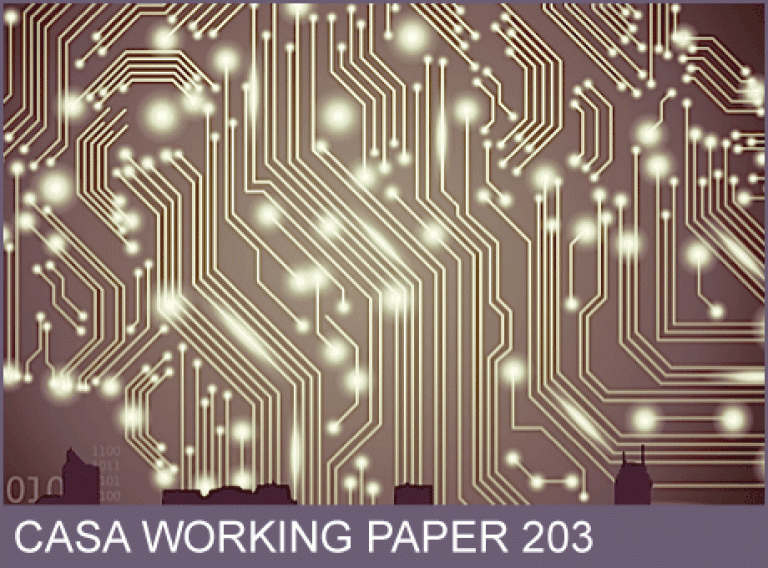CASA Working Paper 203

3 August 2015
Data About Cities: Redefining Big, Recasting Small
In this paper, we argue that the development of data with respect to its use in understanding and planning cities is intimately bound up with the development of methods for manipulating such data, in particular digital computation. We argue that although data volumes have dramatically increased as has their variety in urban contexts largely due to the development of micro devices that enable all kinds of human and physical phenomena to be sensed in real time, big data is not peculiar to contemporary times. It essentially goes back to basic notions of how we deal with relationships and functions in cities that relate to interactions. Big data is thus generated by concatenating smaller data sets and in particular if we change our focus from locations to interactions and flows, then data has faced the challenges of bigness for many years. This should make us more careful about defining what is ‘big data’ and to illustrate these points, we first look at traditional interaction patterns – flows of traffic in cities and show some of the problems of searching for pattern in such data. We then augment this discussion of big data by examining much more routine travel data which is sensed from using smart cards for fare-charging and relating this to questions of matching demand and supply in the context of understanding the routine operation of transit. This gives us some sense of the variety of big data and the challenges that are increasingly necessary in dealing with this kind of data in the face of advances in digital computation.
Author: Michael Batty
Publication date: 20 August 2015
 Close
Close

